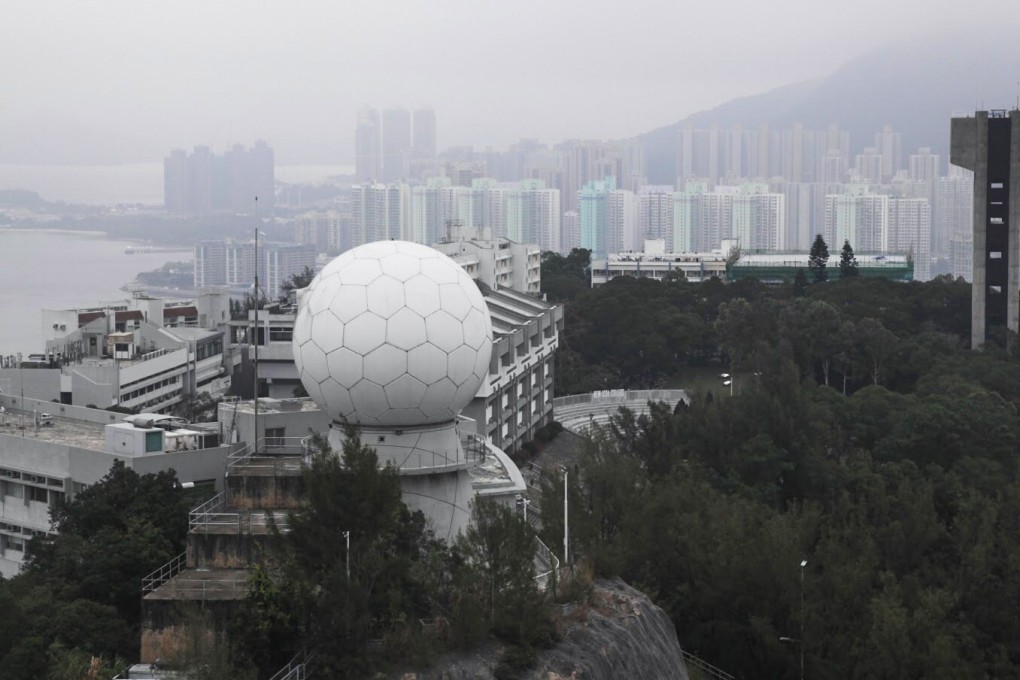Hong Kong disaster relief base becomes unlikely target of Donald Trump’s national security law sanctions
- The Satellite Remote Sensing Ground Receiving Station was set up to monitor natural disasters, but the US now says it will suspend ‘continued cooperation’ from an expired protocol
- The founder of the institute that runs the base says the sanctions are ‘funny’ and there is nothing secret about its work

A satellite station at the Chinese University of Hong Kong that monitors natural disasters such as floods and earthquakes has become an unlikely victim of US sanctions.
The university’s Satellite Remote Sensing Ground Receiving Station, an enormous sphere on a hilltop overlooking the campus, was meant to be an important symbol of international scientific cooperation through the city known as the bridge between mainland China and the world.
The US says it will suspend the “continued cooperation” from a now-expired protocol between the US Geological Survey (USGS) and the institute.
“I find the so-called sanctions totally inconceivable and funny. This agreement we had with the US had nothing to do with national security or secret information,” Lin Hui, the founding director of the Institute, said.
The USGS and officials who signed the agreement in 2009 have not responded to requests for comment.